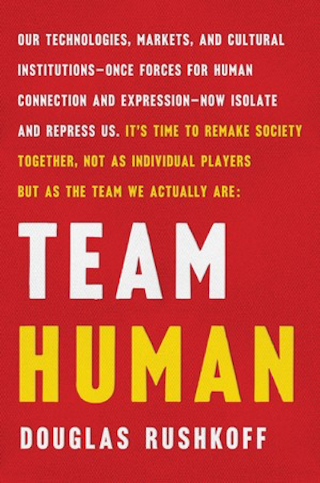How to Harmonize Nature and Progress for a Sustainable Future
Written on
Chapter 1: The Conflict Between Nature and Advancement
In our quest for advancement, it's easy to feel like we're at odds with the natural world. Some radical environmentalists argue that a return to preindustrial lifestyles is essential for nature to reclaim its space. Others contend that we've already committed to technological progress, genetic manipulation, and global capitalism, believing that slowing down will only hinder our ability to address current challenges.
However, neither viewpoint is viable. We can no longer exert dominion over nature, yet retreating from civilization isn't a solution either. This situation shouldn't pit those advocating for nature against those championing progress; we are all part of "Team Human." Responding to crises with a binary mindset leads us to adopt the very logic we resist. While technology has contributed to many issues, it isn't the enemy; neither are markets, scientists, robots, or our inherent desire to innovate. Yet, we must not pursue these advancements at the expense of our fundamental human connections—our emotional, social, and spiritual needs. We must strive for a balance between our connection to nature and our ability to shape our reality. This is not a matter of choosing one over the other, but rather integrating both.
It's a fundamental truth: we can choose not to be entirely in control. We can engage fully in life without needing to dominate it. While we are keen observers and problem-solvers within nature, it is not merely an issue to be resolved. Instead, we must learn to collaborate with nature, just as we have to with the various systems and technologies we've crafted over centuries. There is no going back; the only path is forward.
This principle mirrors the lesson a white-water rafter learns when facing rapids. As the raft plunges into turbulent waters, the instinct may be to resist by thrusting the paddle straight down and holding it still. Alternatively, one might be tempted to let go entirely and yield to the current. Both reactions leave the raft vulnerable to the whims of the river. The optimal strategy is to paddle vigorously and swiftly, adapting to the current while navigating around rocks and obstacles. This approach is neither passive nor resistant, but rather an active engagement with the flow of events to reach the destination safely.
As we navigate the technologically driven turmoil in our social, political, and economic landscapes, we should view it as an opportunity for greater involvement. Now is not the time to criticize the human actions that led us here but to infuse those actions with more humane values. Otherwise, the technologies and systems we create—be it money, agriculture, or religion—can overpower us, making us prioritize their growth over our own needs.
Instead of discarding smartphones, we should program them to enhance our productivity rather than detract from it. Rather than dismantling stock markets, we ought to redesign them to allocate resources to businesses in need, rather than subjecting them to the fleeting desires of investors. Instead of abandoning urban spaces, we should focus on making them more sustainable both economically and environmentally. Achieving this will require increased human creativity, not less.
Environmentalism can sometimes lead us to believe that humanity itself is the root of the problem. However, that's not the case. Humans are not a blight on the planet. Simultaneously, we must acknowledge our capacity to alter the environment according to our desires, often leading to dominance over perceived threats.
We should apply this proactive mindset to address the existential dangers we have created. The very strategies we adopt to prepare for potential global disasters can also build resilience against them. Initiatives like decentralized energy production, equitable resource distribution, and local cooperative development can aid those affected by crises while alleviating the pressures that could lead to such events.
Now is not the moment to relinquish our optimistic spirit but to channel it toward goals that transcend mere dominance.
This passage is derived from section 73 of "Team Human" by Douglas Rushkoff, which is currently being serialized on Medium. You can read the preceding section here and the subsequent section here.
